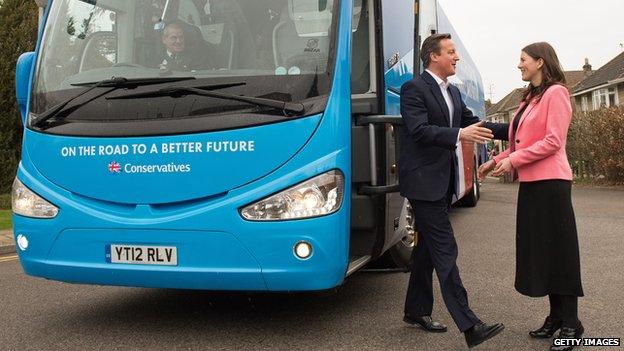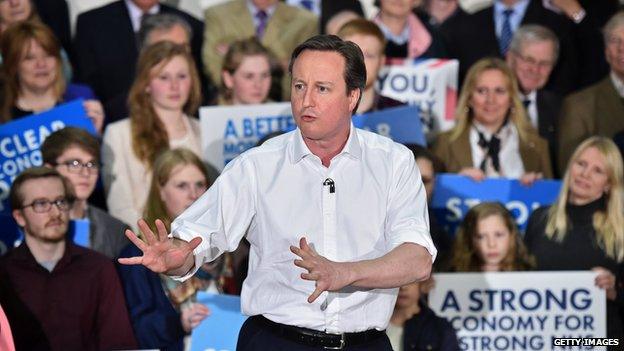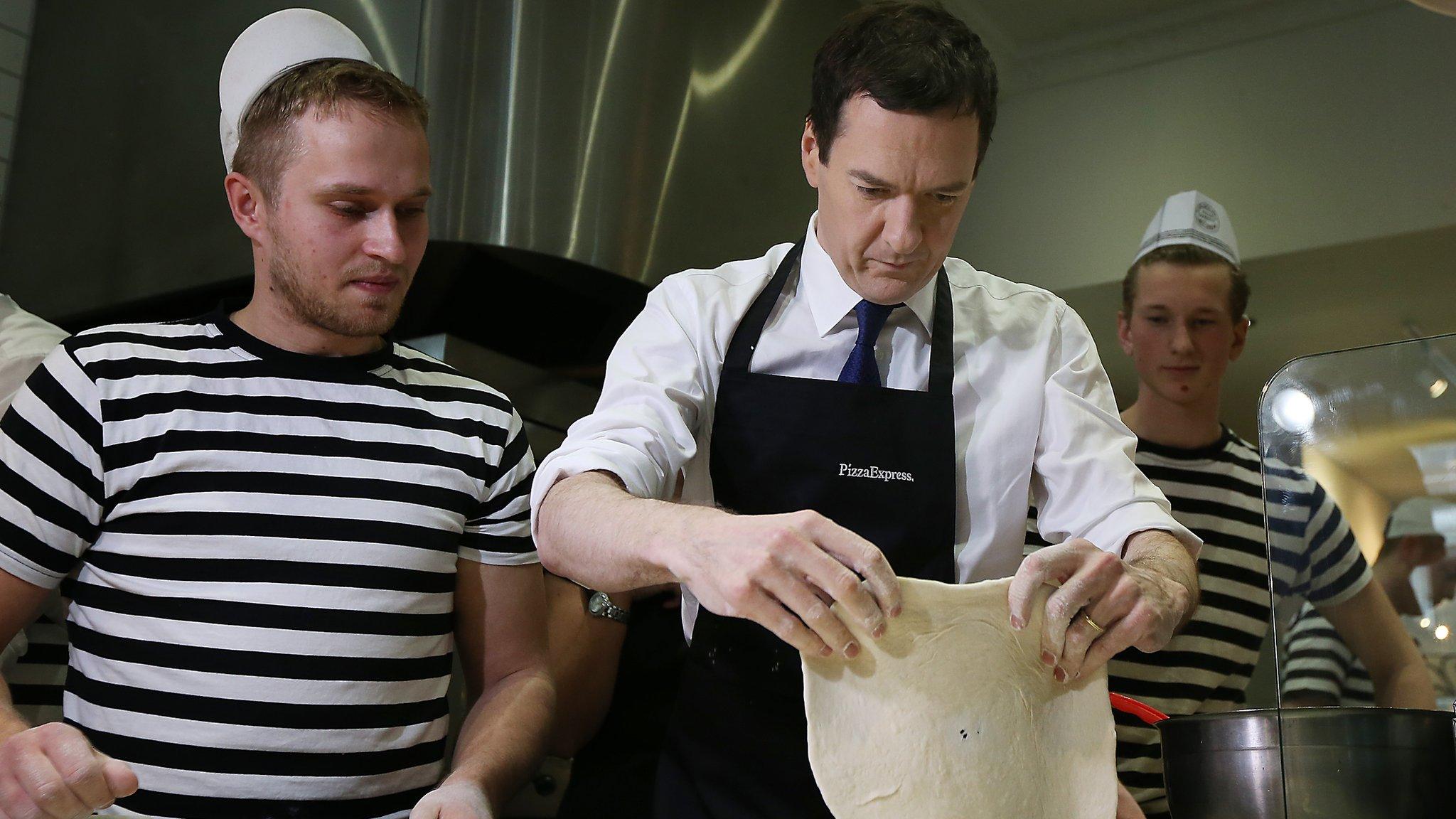Election 2015: Smooth start on Cameron battle bus
- Published

David Cameron hops off his battle bus to greet Michelle Donelan, Conservative prospective MP for Chippenham
Day one set the tone for David Cameron's campaign for another term as prime minister. Every moment was carefully planned and controlled, from the formalities at Westminster to the first rally at a target seat in Wiltshire.
When I covered his election campaign five years ago, David Cameron was the opposition leader offering hope and a fresh start after 13 years of Labour government. Now he is fighting on his record of five tough years in power. He is trying to make a virtue of that fact, though some in his party want a more optimistic, upbeat message.
His favourite phrase of a "long-term economic plan" has already been rehearsed at numerous sessions of prime minister's questions, media appearances and "Cameron direct" meetings with the public.
It is central to the core message which Mr Cameron delivered on Monday and will be repeated across the country over the next six weeks.
The BBC's Carole Walker takes a look inside the Conservative Party campaign bus, as they head to their first campaign rally
He will say that the Conservatives' economic policies are cutting the deficit, reducing unemployment and creating economic growth.
He will warn that Labour would put that at risk and bring economic chaos. And he will set out the "stark choice" of either himself or Ed Miliband holding the reins of power in Downing Street.
The first rally of the campaign was at a school at Chippenham in Wiltshire, where the Conservatives are hoping to overturn Duncan Hames's Liberal Democrat majority of just over 2,400.

David Cameron speaks at a rally at a school in Wiltshire
Mr Cameron - jacket off, sleeves rolled up - spoke for no more than 10 minutes to about 300 Tory activists in a small school hall, then headed straight back to London. That was sufficient to deliver the key lines in time for the evening television bulletins and Tuesday's papers.
The tussle of the day was over the Tory leader's claim that Labour would cost working families £3,000 in higher taxes. Labour dismissed it, the respected Institute for Fiscal Studies questioned the basis for the assertion, but the Tories said they stood by their figure. Such arguments are the daily fodder of elections - rarely do they have much overall impact on voters.
The next big test will be Thursday's televised debate. Tory strategists know it's a risky event, with Mr Cameron lined up alongside six opponents. They will be hoping it does not upset their carefully-laid plans for the next six weeks.
- Published30 March 2015
